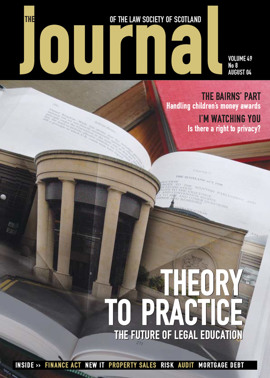Website reviews
Longman Web Dictionary
www.longmanwebdict.comCambridge Dictionaries Online
http://dictionary.cambridge.orgThere are, in point of fact, a number of dictionaries available online and these two are as good (and as free) as any you will find. It is also important to note that these two work with the correct spellings of words (according to the UK English conventions, rather than their US equivalents). The use of both sites is very similar and also very simple. Just type in the word you want, and the site will give you the definition(s). These are far more detailed than the version you would find on your word processor’s spellchecker or thesaurus tool.
The Longman Web Dictionary boasts that it is the “Biggest & the Best” online dictionary and is also added to on an ongoing basis, making it up to date. “Up to date” in this context means that it includes all sorts of modern terms like “ecotourism” and “keep it real”.
The Cambridge Dictionaries do much the same job, but include a dictionary of idioms as well as phrasal verbs (whatever they may be).
Ease of Use: 4/5Site Design: 3/5
Usefulness: 3/5
That’s right, the world wide web’s most popular search engine also doubles as a dictionary (of sorts). Instead of entering your search terms in the big white box, entering “define: decree” for example, will give you a page of definitions of the word “decree” found on the web, harvested from various online glossaries and other texts. This brings with it some problems, since no one vets these definitions. Therefore there is the occasional satirical definition, which should of course be ignored.
However, it is most useful if you are looking for definitions of jargon terms (particularly computer jargon). This feature is also of particular use due to the ability to browse a number of uses of the word or term in a variety of contexts.
Ease of Use: 4/5Site Design: 4/5
Usefulness: 3/5
Hutchinson Dictionary of Difficult Words
www.tiscali.co.uk/reference/dictionaries/difficultwordsWith most dictionaries, there is a preponderance of words with which most members of the Law Society of Scotland will (or should) already be familiar. Thus, Hutchinson has produced (and Tiscali has made available online) the dictionary of difficult words. No shame should come your way while using this tool. If a colleague or client finds you using it, they will be reassured to realise that it is only difficult words which pose you problems. In addition to the obscure and polysyllabic, this dictionary also contains a large number of words and short phrases in foreign tongues which are commonly (or uncommonly) used in English, including a number of Latin words used from time to time in legal parlance.
You can search by inputting the term you wish to be enlightened on, or browse through the A-Z list and be amazed at the new words you can learn. Very useful for playing “Call My Bluff” at home.
Tiscali Reference has made available, in parallel to the difficult words, dictionaries of animals, plants and computers – for those more specialist terms.
Ease of Use: 3/5Site Design: 3/5
Usefulness: 4/5
Roget’s Thesaurus
http://asadz.com/thesaurusThough an ever useful companion to the dictionary, there are substantially fewer online thesauruses (or thesauri) to contend with. Obviously, Roget’s is the grandfather of such works and, as such, a group known as Project Gutenberg have brought his 1911 version to the Internet.
Very welcome and very useful it is too. Type in a word and the site will respond with a string of synonyms, grouped by themes with any internal cross-references hyperlinked for ease of navigation.
Ease of Use: 4/5Site Design: 4/5
Usefulness: 4/5
A Dictionary of Slang
www.peevish.co.uk/slangI hesitate to bring this site to your attention, because it contains many vulgar terms that might offend the more sensitive reader (don’t say I didn’t warn you). However, it may be of use where taking a statement from a client or witness. Embarrassment may prevent you from asking for a definition of every colloquialism peppered in a precognition, but the dictionary of slang has a wealth of terms to choose from, including a number of words which are clearly Scottish in origin. It even lists the MSPs’ favourite bugbear: “neds” – and much of their vocabulary, too!
Ease of Use: 3/5
Site Design: 3/5
Usefulness: 3/5
In this issue
- Making the system work
- Sole survivors?
- Firm foundations
- The paper trail
- Private lives in public
- IT: what next?
- Roll again
- Destiny's child
- The great day comes
- SOX education
- Peer review: staying on target
- Obituary: James D Wheelans, CBE
- Obituary: JAMES D WHEELANS, CBE (1)
- Time, gentlemen?
- Plain English has landed
- Tangle o' the Isles
- Hunting down the pirates
- Scottish Solicitors' Discipline Tribunal
- Website reviews
- Book reviews
- How much law, anyway?
- FSA's net widens






